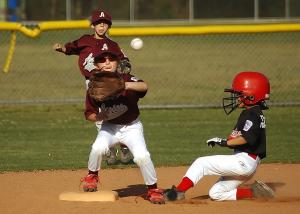Parental Reactions
It can be hard for parents to know how to react when a child wants to quit. “Balance is the key,” said Dr. Adam Earnheardt, who chairs the communications department at the College of Creative Arts and Communication at Youngstown State University. “There’s a group who will claim you shouldn’t allow a child to quit under any circumstance. Others claim quitting is okay because kids are too young to know what they like.”
In addition, parents should be willing to be flexible to allow for a child or teen’s immaturity. Kids don’t always think ahead, and sometimes the reality of the situation isn’t quite what they imagined (as with my girls and dance class). Too, kids often find themselves overwhelmed by the amount of time or effort something takes.

When faced with a child who wants to stop doing an activity or sport, parents should avoid using blanket statements like “I’m not raising a quitter,” or “You never stick with anything,” because those attack who the child is, not this particular behavior.
As Earnheardt pointed out, “Regardless of your position, the quitting discussion provides a great opportunity to engage your child about commitments, and how other people rely on us when we make those commitments.”
Parents should let kids know their expectations of joining a team or signing up for a class ahead of time. For example, we tell our kids that we expect them to finish their initial commitment, which can range from a six-week class to a year-long time frame. But we also encourage them that every day won’t be a bad one when they do have an off day. “Letting them know that we all have some days that are better than others helps them persevere, and this is true for school, sports, music, etc.,” said Heidi McBain, a licensed professional counselor and marriage and family therapist.












